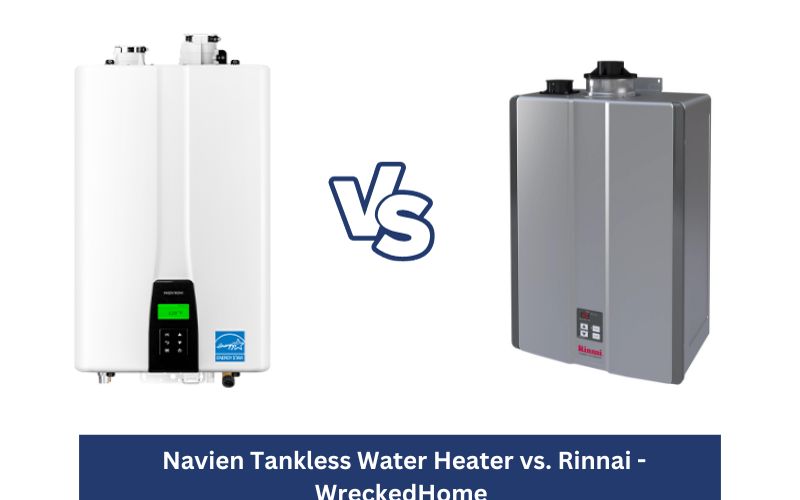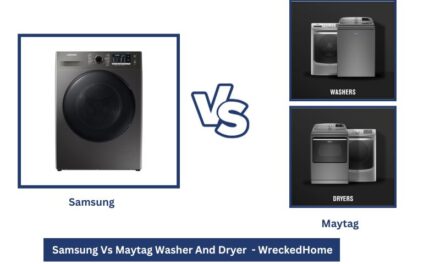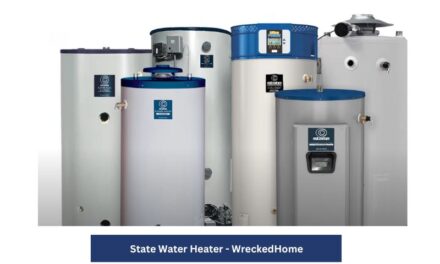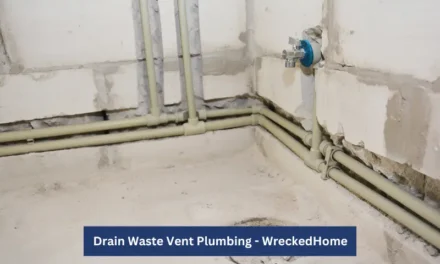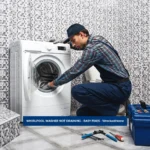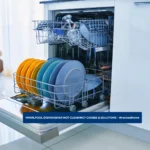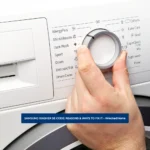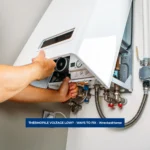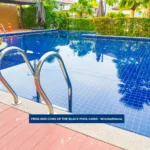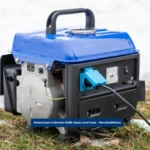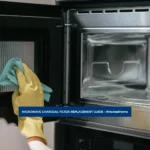Choosing the perfect water heater can be a daunting task. Especially with the myriad of options available in today’s dominate market. If you want to upgrade your water heating system then this is a good time. This worthwhile decision directly impacts your comfort, energy bills, and even your carbon footprint. Let’s deep down of Navien Tankless Water Heater vs Rinnai.
Are you looking for best options to keep your water hot especially in winter? Then Navien and Rinnai are two leading brands that have stood out in array of choices.
Both tankless water heaters offer reliable and efficient solutions for your hot water needs. But which one is right for you? Let’s dive in.
We compiled this helpful guide to explore the histories and offerings of these industry giants. This article will help you to make an informed decision that suits your unique needs and preferences.
What are Tankless Water Heaters?
Do you have any idea about what a tankless water heater is? Before we dive into the specifications of Navien and Rinnai, let’s first understand how tankless water heaters provide hot water on-demand.
Unlike traditional storage tank water heaters, there is no bulky tank and no standby energy loss. They heat water only when you need it.
This technology offers several benefits to users like
- Energy Efficiency: Tankless water heaters are highly energy efficient because of auto on-off water heating system. They don’t waste energy to keep water hot 24/7. That helps in lowering energy bills and reduces environmental impact.
- Continuous Hot Water: With tankless auto heating systems, you won’t run out of hot water during use like shower or doing dishes. They provide a constant supply of hot water as long as you need hot water and have a water resource.
- Space-Saving: Tankless units are compact and free up valuable space in your home. You can mount your heater on the wall that also looks appealing without crowding floor space.
Brand Overview
There are two main brands that consumers consider top choices. If you want to know facts about these brands Navien Tankless Water Heater vs Rinnai then you must keep reading. We not only cover the overview of brands but also some comparative factors also
A. Navien
Navien is a South Korean company, founded in 1978. It has quickly built a reputation for efficiency and rapidly risen to prominence in the tankless water heater industry.
With decades of experience to the table it allows for higher efficiency and lower CO2 emissions. Their units boast advanced condensing technology and commitment to energy efficiency.
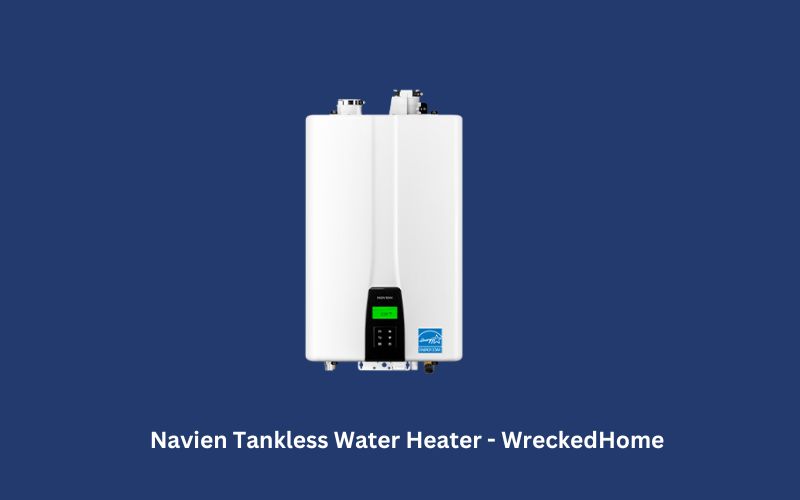
Navien’s tankless water heaters are packed with features like:
- Condensing Technology: Navien uses technology into their units, which captures and utilizes exhaust heat. This feature preheats incoming water and maximizes energy efficiency.
- Smart Controls: With advanced options and availability of setting customization its easy to use. That helps to monitor and control performance remotely through smartphone apps.
Visit our store for 10% off our Save Home Energy products here.
B. Rinnai
Rinnai, a Japanese company has been around since 1920. Rinnai has a long history of providing reliable heating solutions and a wide range of models. They’ve become a trusted name in tankless water heaters due to budget-friendly options to high-end units.
Key attributes of Rinnai tankless water heaters include:
- High GPM Ratings: for large households Rinnai offers an ample supply of hot water. This is possible due to its high gallons-per-minute (GPM) ratings.
- Diverse Product Line: Rinnai is for everyone with a wide range of tankless models. They cater to various needs and budgets of their clients.
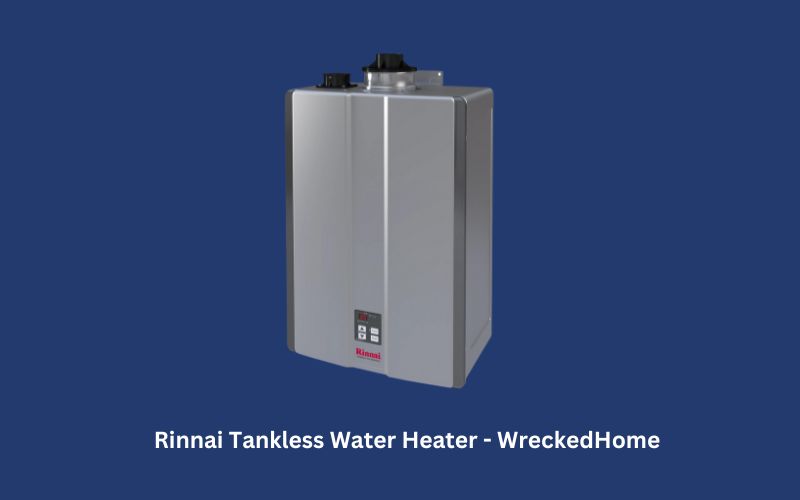
Technical Comparisons
These two brands are well known for their own uniqueness like cost saving, energy efficiency, and durability. But, when there’s a need to choose one its complicated knowing what to pick.
To ease you in your decision there is a side by side comparison of navien tankless water heater vs rinnai
- Efficiency
When it comes to energy efficiency, both brands tout energy-efficient models. One way to compare efficiency is through Energy Factor (EF) ratings that means higher numbers better efficiency. Navien’s condensing technology often results in between 0.95 and 0.99 high EF ratings. On the other hand Rinnai models also rank well in this regard with EF value 0.82 to 0.96.
- Flow Rate and Size Options
Gallons-per-minute (GPM) ratings measures how much hot water the unit can produce at a given flow rate. Navien and Rinnai offer various models with different GPM ratings 11.2 and 10 GPM respectively.
With options for small to large households you can choose the right model. Just pay attention to your needs. For smaller households Navien is suitable with delivering consistent hot water at low flow rates.
- Lifespan and Durability
The lifespan and durability of tankless water heaters make it an investment. On average, tankless units have a longer lifespan of 15 to 20 years with proper maintenance than traditional tanks.
Both Navien and Rinnai have a reputation for building robust units and offer excellent support and readily available replacement parts. However, usage and maintenance are the exact factors that effect longevity.
- Installation and Maintenance
Installation and maintenance play significant roles in the performance and longevity of tankless water heaters. Both are relatively easy to install, but it’s essential to hire an expert to avoid any problems.
Maintenance requirements generally include periodic descaling to prevent mineral buildup. Both companies provide guidelines for maintenance, offer excellent support and readily available replacement parts. Navien models, due to being compact, are easy to fit in tight spaces.
- Price and Value
Price is important for most consumers. Navien and Rinnai offer a range of models at different price points. Rinnai starts at a slightly lower price than Navien. This price varying factor eases you to find one that fits your budget. But it’s important to consider quality and life span over price. Don’t compromise on durability for the sake of few cents.
- Emissions
When it comes to environmental impact and growth, it’s worth noting that both brands offer low-NOx models. This environmentally friendly nature helps to reduce the greenhouse gas emissions associated with water heating. Navien lowers CO2 emissions with the use of advanced technology that make it more environmentally friendly.
- Energy Savings
One of the primary advantages of tankless water heaters over traditional water heaters is their energy efficiency and savings. By heating water only when needed, this contributes positively to the environment by reducing energy consumption.
How much energy you can save dependss on your usage patterns and the energy source (electricity, natural gas, propane) in your area. On average Navien’s high EF ratings translate to more energy savings than Rinnai.
- Waste and Recyclability
To make the product sustainable and environmentally friendly one factor is recyclability. Big fishes in market are following this trend can be a significant factor for environmentally conscious buyers.
Similarly both companies aim is to reduce their environmental footprint. For this approach Navien have a mechanism to use recycled materials in some of its models. On the other hand, Rinnai’s focus is to offer long-lasting products in the market to minimize waste.
Pros and Cons
Navien Tankless Water Heater
Pros
- High Energy Efficiency
- Advanced Condensing Technology
- Smart Controls remote monitoring
- Low Flow Rate Efficiency
- Eco-Friendly with recycled materials.
- Space-Saving with compact design
Cons
- Higher Initial Cost
- Complex Installation
- Limited Range
Rinnai Tankless Water Heater
Pros
- High GPM Ratings
- Wide Product Range
- Reputation for durability and robustness.
- Offering good value for money.
- Easier to install
Cons
- Lower EF Ratings
- Offer as much energy savings
Important Considerations before Buying
By analyzing the clear difference between these two brands you are able to make your choice according to your need and requirements. But before making your final decision between navien tankless water heater vs rinnai, pay attention to these critical factors:
- Household Size: the size of your home is basic factor before your final on water heater. You must have a check list of people in your home and your typical hot water usage patterns. In this way you will determine the appropriate GPM rating for your tankless water heater.
- Climate: Your climate is not an ignorable thing because it affects the performance of a tankless water heater. The colder climates support higher GPM rating to maintain hot water flow during the winter months.
- Intended Usage: The hot water using intent is the most important thing to note. Higher GPM rating is best for homes that have multiple bathrooms with showers. Rinnai is the best option when all appliances are running simultaneously.
- Budget: You must have a budget plan in your mind before going to purchase. The quality and longevity are supportive factors for budget.
- Professional Installation: Although it’s easy to install tankless water heaters, the help of professional in installation ensures a safe and secure fitting. So you must consider hiring a professional for your hassle free tankless water heater installation.
- Maintenance: the lifespan and efficiency of a unit can increase with regular maintenance. Make sure to check and update your system to enjoy for a long time.
Conclusion
In the navien tankless water heater vs rinnai showdown, both brands offer excellent tankless water heaters with distinct advantages. Navien leads in efficiency and eco-friendliness with innovative technology. On the other hand, Rinnai excels in reliability and has a broader range of options with high GPM ratings. It caters to larger household requirements of high hot water usage.
In the end, the choice between Navien and Rinnai depends on your specific needs and preferences. Before making your final decision, carefully assess factors like flow rate, durability, efficiency, and budget.
By considering all these aspects, ensure either brand could be the perfect fit for your home.
For any repairs, installations, builds, or questions; We recommend you to hire a professional. Find A Pro Near You Here!

